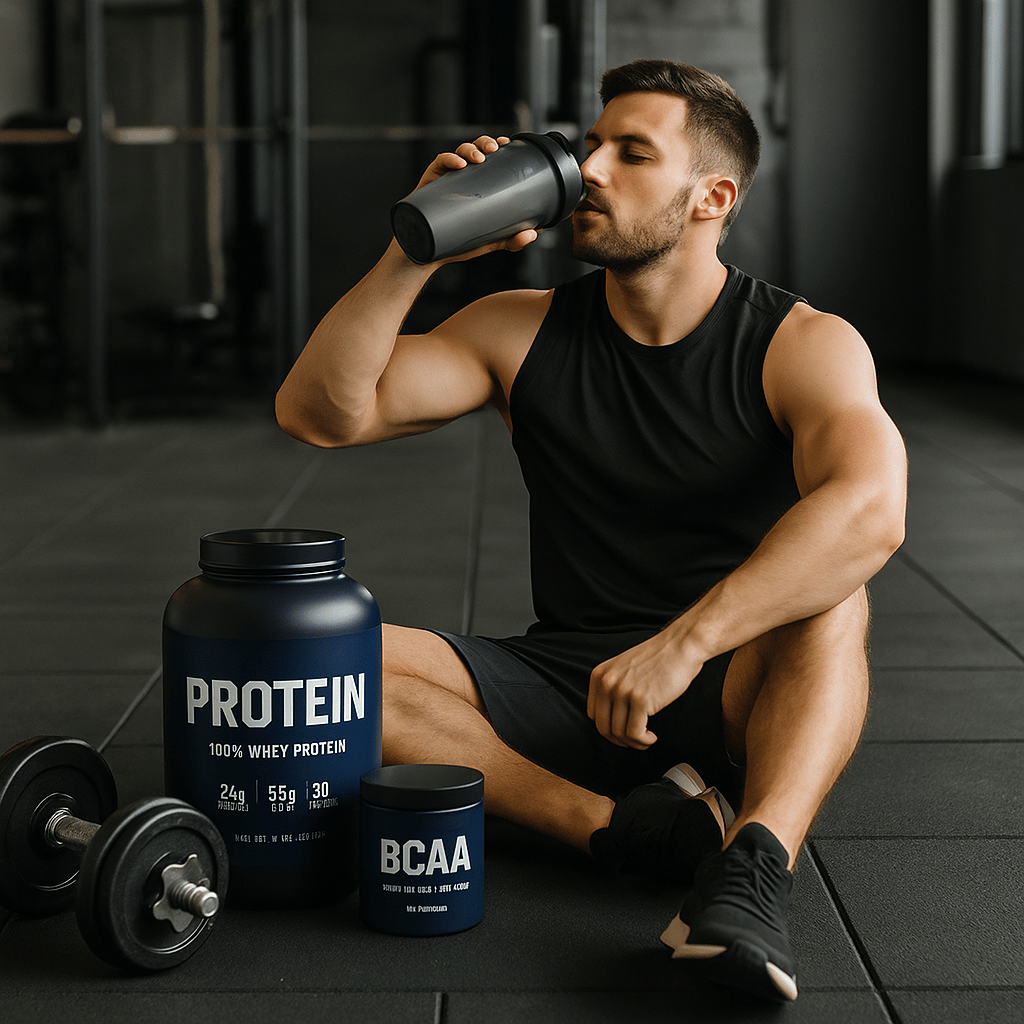When it comes to building muscle, protein is a word you’ll hear a lot. It’s the most essential macronutrient for muscle growth, recovery, and overall performance. But does consuming more protein actually lead to better bodybuilding results? And if so, what is the recommended daily intake to maximize muscle gains?
This article breaks down the science of protein for bodybuilding, discusses how it works in your body, outlines ideal intake levels, and helps you choose the best protein supplements to fuel your results.
Why Protein Is Crucial for Bodybuilding
Protein is made up of amino acids, which are the building blocks of muscle tissue. During intense workouts, especially resistance training, your muscles experience tiny tears. Consuming enough protein allows your body to repair and rebuild those muscle fibers, resulting in muscle growth (hypertrophy).
Key Benefits of Protein in Bodybuilding:
-
Promotes lean muscle mass development
-
Aids in muscle recovery and reduces soreness
-
Supports fat loss by boosting metabolism
-
Helps retain muscle during calorie deficits
-
Improves overall strength and performance
🛒 Shop Muscle-Building Protein Supplements
Does More Protein Always Equal Better Results?
Yes… But Only to a Point
Consuming more protein can lead to better muscle-building results, but only up to a certain limit. Once your body’s protein requirements are met, extra intake won’t necessarily translate into more muscle. Instead, it may be used as energy or stored as fat.
How It Works:
-
Muscle protein synthesis (MPS) is the process of building new muscle.
-
To maximize MPS, protein must be consumed in adequate quantities and spaced throughout the day.
-
Research shows that consuming protein in doses of 20–40 grams per meal is optimal for stimulating MPS.
🛒 Explore High-Quality Whey Protein
How Much Protein Do You Really Need?
Recommended Daily Intake for Bodybuilders
| Activity Level | Recommended Protein Intake (per kg of body weight) |
|---|---|
| Sedentary Individual | 0.8g – 1.0g |
| Recreational Athlete | 1.2g – 1.6g |
| Strength Training (3–4x/week) | 1.6g – 2.2g |
| Intense Bodybuilding (>5x/week) | 2.2g – 2.7g |
For example, a 180-lb (82kg) bodybuilder may benefit from:
2.2g x 82 = ~180g of protein/day
⚠️ Note: Consuming more than 2.7g/kg offers no significant benefit for muscle gain and may put extra stress on the kidneys over time.
Timing Matters: When to Take Protein for Best Results
1. Post-Workout Window (Anabolic Window)
Within 30–60 minutes after your workout, consuming 25–40 grams of protein helps maximize muscle recovery and growth.
2. Pre-Workout Support
Having protein before training can help reduce muscle breakdown and prepare your body for high-performance output.
3. Bedtime Protein
Casein protein is a slow-digesting protein ideal before bed to prevent overnight muscle breakdown.
🛒 Try Micellar Casein for Overnight Recovery
🔗 View Pre & Post-Workout
Best Protein Sources for Bodybuilders
Whole Food Protein Sources:
-
Chicken breast
-
Eggs and egg whites
-
Greek yogurt
-
Salmon and tuna
-
Lean beef
-
Tempeh, tofu, lentils (plant-based)
Top Protein Supplements:
1. Whey Protein Isolate
Fast-digesting and ideal post-workout.
🛒 Buy Whey Isolate
2. Casein Protein
Slow-digesting, perfect for nighttime.
🛒 Shop Casein Supplements
3. Plant-Based Protein
Great for vegans and lactose-sensitive users.
🛒 View Vegan Protein Blends
Understanding Protein Absorption & Digestion
Not all proteins are created equal. The bioavailability (how well your body absorbs it) is crucial.
| Protein Type | Absorption Rate | Best Use Case |
|---|---|---|
| Whey Isolate | Fast (30-60 min) | Post-workout recovery |
| Whey Concentrate | Moderate | Daily supplementation |
| Casein | Slow (up to 8 hrs) | Overnight repair |
| Plant Protein | Moderate-slow | General support or vegan diets |
Look for products with complete amino acid profiles, especially rich in leucine, which triggers muscle protein synthesis.
🔗 Explore Leucine-Enhanced Protein Products
Common Myths About Protein and Bodybuilding
❌ Myth 1: More Protein = More Muscle
Fact: Excess protein without resistance training won’t lead to gains.
❌ Myth 2: High Protein Harms the Kidneys
Fact: In healthy individuals, moderate-high protein diets show no adverse effects on kidney function.
❌ Myth 3: You Can Only Absorb 30g per Meal
Fact: While 30–40g is optimal for MPS, your body will absorb all the protein you eat, but the effectiveness for muscle-building tapers off.
Tips to Maximize Protein Efficiency
-
Distribute protein evenly across 4–6 meals daily
-
Combine protein with carbs post-workout for better glycogen replenishment
-
Supplement with BCAAs during long workouts for intra-training support
-
Stay hydrated, especially on high-protein diets
🛒 Shop BCAAs & Intra-Workout Support
Final Thoughts: Is More Protein Better in Bodybuilding?
Yes, increasing protein intake can lead to better results in bodybuilding, but only when paired with structured training, adequate recovery, and proper timing. Most bodybuilders thrive at 1.6–2.2g/kg daily, with advanced athletes occasionally pushing up to 2.7g/kg.
Remember, consistency is key—whether through high-protein foods or top-rated supplements, meeting your daily intake will help you build lean muscle, recover faster, and get the results you’re working hard for.



